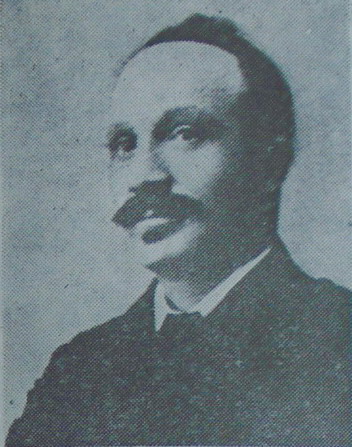Paul Bujor
Paul Bujor (1862–1952) was a prominent Romanian biologist, zoologist, and politician, known for his significant contributions to the field of biology and his active role in Romanian politics during the late 19th and early 20th centuries. Bujor's work in biology, particularly in the study of fauna and embryology, has left a lasting impact on the scientific community, while his political endeavors helped shape the socio-political landscape of Romania during a period of significant change.
Early Life and Education[edit | edit source]
Born in 1862 in the Moldavia region of Romania, Paul Bujor showed an early interest in the natural sciences. He pursued his education at the University of Bucharest, where he specialized in natural sciences and particularly in zoology. Bujor furthered his studies abroad, spending significant time in Western Europe, which was then the center of scientific research and discovery. This exposure to the broader scientific community greatly influenced his later work and research methodologies.
Career in Biology[edit | edit source]
Upon returning to Romania, Bujor dedicated himself to the study of Romania's fauna. He conducted extensive research on the vertebrates of Romania, with a particular focus on ichthyology, the study of fish. His work in this area contributed to the understanding of the biodiversity within Romanian waters and had implications for conservation efforts in the region.
Bujor was also deeply interested in embryology, the study of the development of embryos. His research contributed to the understanding of the developmental stages of various species, adding valuable knowledge to the field of developmental biology.
Throughout his career, Bujor published numerous articles and books on his findings, contributing significantly to the scientific literature of his time. His work was recognized both in Romania and internationally, earning him a respected place among the scientific community.
Political Career[edit | edit source]
In addition to his scientific pursuits, Paul Bujor was also active in Romanian politics. He was a member of the Romanian Parliament, where he advocated for policies that supported scientific research and education. Bujor believed in the importance of science and education in the development of a modern society and worked to promote these values within the political arena.
His efforts in politics also extended to social issues, where he was known to champion the rights of the underprivileged and advocate for social reforms. Bujor's dual role as a scientist and politician allowed him to bridge the gap between these two worlds, using his scientific knowledge to inform his political views and decisions.
Legacy[edit | edit source]
Paul Bujor passed away in 1952, leaving behind a legacy of scientific discovery and political activism. His contributions to the field of biology, particularly in the areas of ichthyology and embryology, continue to be recognized by the scientific community. Meanwhile, his efforts in the political sphere helped to lay the groundwork for the advancement of science and education in Romania.
Bujor's life and work exemplify the impact that dedicated individuals can have on both the scientific community and society at large. His commitment to research, discovery, and social progress serves as an inspiration to future generations of scientists and politicians alike.
Navigation: Wellness - Encyclopedia - Health topics - Disease Index - Drugs - World Directory - Gray's Anatomy - Keto diet - Recipes
Search WikiMD
Ad.Tired of being Overweight? Try W8MD's physician weight loss program.
Semaglutide (Ozempic / Wegovy and Tirzepatide (Mounjaro / Zepbound) available.
Advertise on WikiMD
WikiMD is not a substitute for professional medical advice. See full disclaimer.
Credits:Most images are courtesy of Wikimedia commons, and templates Wikipedia, licensed under CC BY SA or similar.Contributors: Prab R. Tumpati, MD

